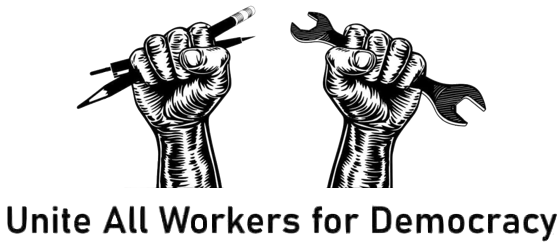Sarah Lazare writes for The Nation:
Chris Viola, 40, is one of Carpenter’s coworkers, and has been active in Unite All Workers for Democracy, a rank-and-file movement within UAW to improve internal democracy and accountability. UAWD backed the presidential campaign of Shawn Fain, who won in March as a reform challenger calling for a more member-led and militant approach. A few years ago, Viola said, he had the job of putting glass for windows into doors. “You think, ‘I’m going to grab this with my thumb and fingers.’ But if you do that several hundred times a day, it will ruin your hands.”
He said his hands became swollen and painful, and started waking him up in the middle of the night. “I don’t think I was playing video games anymore,” he said. “I had to be careful about cleaning up around the house, washing dishes, and cooking. I had to hold things a certain way.”
He eventually figured out that he needed to cup his hands around the glass, rather than pinch it. While the pain subsided, he said he is troubled by the knowledge that some of his coworkers, who have been there longer, suffer from more severe and lasting injuries.
During the course of the strike, UAW has not publicized demands related to ergonomics. But it has insisted on measures to improve work-life balance, like more paid time off. It’s common for workers to do 12-hour shifts, sometimes with a mix of overnight and day time, and the prevalence of mandatory overtime has been a key complaint from striking workers. Earlier in bargaining, Fain captured headlines when he called for a 32-hour work week, with no reduction in pay.
Read more in The Nation.

